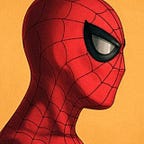Ready Player One Review
Spark Capital hosted a Ready Player One viewing party last night in SF. It was a really fun event. I caught up with friends and meet a few new faces. A big thanks to Rachael and Dominique at Spark for organizing.
I am a huge fan of Ernest Cline’s book, so when I heard a movie was being made I was excited. That said, when I saw the first trailer or two, I was concerned it wasn’t going to be good. So my expectations going in to the film were mixed.
Is it a good movie? Not really.
Is it a good popcorn movie? If you like video games, movies, pop culture references, grandiose CGI, and rollercoaster-esque camera tracking: then yes, go see it in theaters for the full effect.
Some good popcorn movies are also good movies. Mad Max: Fury Road is the iconic example of a movie that excels on both fronts. Why does Ready Player One miss on the good movie front? Book-to-movie adaptations are hard.
Some adaptations fail because they follow too closely to the original text. The Watchmen is a perfect example of this failure. Zack Snyder’s adaptation of this beloved comics series captured all the brutality and cynicism of the comics in a way that made its 163 minute runtime feel painfully loyal to the original series and sacrificed entertainment value in the process. Movies from fun books need room to be fun movies, and that requires some space for creative license in adaptation. I was pleasantly surprised to find this is not Ready Player One’s problem. The movie deviates from the book significantly in plot events, and the changes (to plot only) are 90% for the better.
For example, in the book, there is a plot device called FlickSync, where characters have to play a game of “movie-karaoke” (players quote Matthew Broderick’s lines in WarGames) in order to win a mini-game and progress in the plot. Spielberg’s Ready Player One never uses the phrase FlickSync, ditches WarGames, and totally changes the plot device for the better. The movie equivalent adaptation of this concept makes for, by far, the best 15 minutes of the movie, as the central characters play with the sets, themes, and events of The Shining. Spielberg simultaneously messes with and pays homage to The Shining in a way that only an authentic connoisseur of movies could do. It feels like a more approachable version of Tarantino’s same mash-up-like love of film.
If that’s the movie’s peak, the nadir is the beginning. There is no investment in Wade’s plight in the Stacks, no earned development in the Hero’s Journey, no reluctance, and, as a result, generates no empathy. Instead, the beginning of the movie spends 90% of its calories setting up all the rules of the game (both the “rules of the game” of the movie and the rules of the literal game of the Oasis). It crosses into the territory of running down a long checklist of rule explaining, and it tries to compensate for this flaw by throwing the camera tracking around the screen in typical 3D-movie, gravity-defying craziness that is just distracting. There is a Hamlet-esque “stating of the rules of the game from beyond the grave” scene that the book does a good job of earning and the movie takes as a foregone conclusion before it is even shown. A missed opportunity.
Elsewhere in the rule set: the book sets up its central McGuffin in a way that feels like the attainment and outcome matters, not just the journey. By contrast the movie feels littered with McGuffins that distract from its central McGuffin such that it’s hard to keep track of which ones matter and which ones are ancillary.
Despite all those flaws, there is one audience that will have fun with this movie beyond just its good-popcorn-movie value: easter egg hunters. There is a plethora of quick shot cultural references cast about every scene. If you consider yourself a savant of pop culture (80s and onward) you’ll find the movie winking at you constantly. Ready Player One (the book) bathes in nostalgia in a way that feels deliciously indulgent. Ready Player One (the movie) attempts to recreate that experience, and in Spielberg’s hands, does so best in harking older movies, which makes sense as Spielberg’s wheelhouse.
